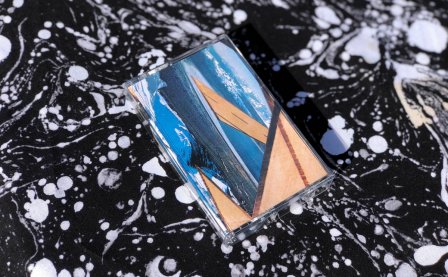Look out the window at the hills on the horizon and spot the lone figure of Takahiro Yorifuji, made tiny by distance, methodically packing another stone into the foundation of a low wall that curves up and down the slopes. At fifty-some physical objects deep, his catalog of gentle guitar-based improvisations gathers mass and density with each passing session released to whispered adorations across the international ambient underground. We pop another Hakobune tape into the deck and the moments we spend listening slip from the scale and join together into a cloud that hangs over the living room. We return to his catalog not for the sake of its diversity, nor its element of surprise. We return to start the same meditation once again, from right where we left off.
Music made for sleeping has experienced a renaissance. Bedtime albums by celebrities and noted minimalist composers have made headlines, and spawned sleep music thinkpieces that identify the likes of Brian Eno or La Monte Young as the style’s forefathers. Despite its absolute beauty, its quietude, Hakobune’s music does not make me feel like sleeping. I listen to it with the goal of learning more. I seek evidence of his human input, hands on strings, somewhere within the mist of reverb. I look into this water mirror from either side of the body not to see my own reflection, but to focus beyond the flat plane at the figure obscured behind it.
Mizukagami, Hakobune’s first release with Sacred Phrases, arrives on October 30. You can listen to the whole album below. Though moving opener “Nagasaki” stands as one of Yorifuji’s longest pieces on record, it speeds through discrete atmospheres and clouds of chordal harmony at a clip faster than his average slow pacing. Changes in tonality and texture occur at a rate slow enough to evade easy detection, yet we coast over a peak every few minutes into a passage radically different in mood (by his admittedly rarefied standards) than where we started — all within the cohering jurisdiction of his solo guitar performance. “Shiga” and “Shizuoka,” the shortest form pieces here, compress a similar infinitesimally building trajectory into tiny capsules, as if Hakobune sought to make singles for radio play to entertain the denizens of a coral reef ecosystem. “Yamagata” stands as the most “classic” of the four pieces here by letting the slow murmur of its delay trails linger past the point of any noticeable recursion or variation into the realm of pure wash.
More about: Hakobune



